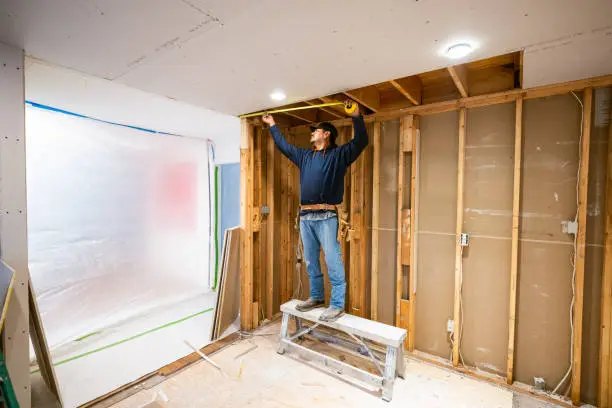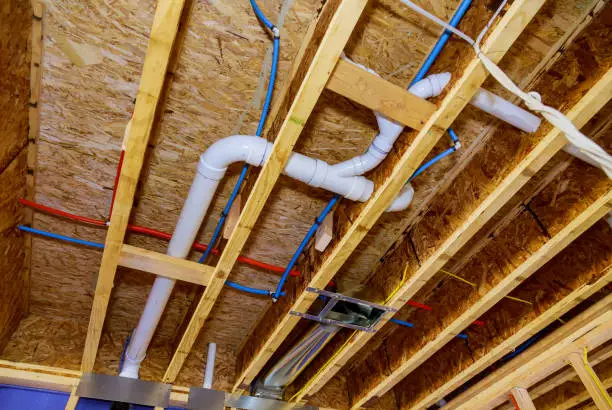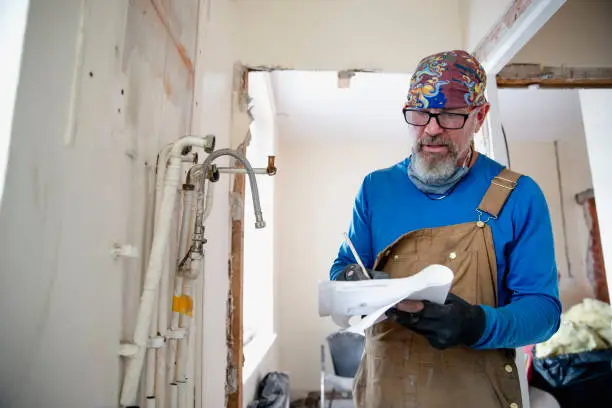Initiating a bathroom remodel can be very rewarding. But before you even dig into the ground or attach fixtures, you need to keep in mind that an important part of the process shouldn’t be forgotten. Permits provide evidence that your bathroom remodel meets all code requirements and includes important safety guidelines. If you are doing extensive bathroom remodeling or even minimal improvements, knowing when to use permits and how to get them may save you costly hiccups or unanswered issues.
Let’s take a look at all that needs to be known about collecting permits for your bathroom remodel, including when and how to collect them, and why scavenging for experience in bathroom remodelers is a must for easy compliance.

When a Bathroom Remodel Requires a Permit
Remodelers usually find that even minor projects need official permits. If your changes plan involves going underneath the exterior, you probably should get a permit.
Plumbing, Electrical, and Structural Changes

In case you are changing any area of the plumbing, electrical, or even structural system, a permit should usually be required. For instance, in order to move a sink or toilet through rerouting pipes or in order to improve electrical wiring and install new outlets or lights, a permit has to be obtained to make sure regulations in building are observed. If you are doing major structure renovation such as knocking a wall down or upgrading the floor joists to support a soaking tub you will need professional approval.
What Counts as Cosmetic vs. Major Work
Changes such as painting repair, updating a backsplash, new install fixtures, or retiling usually require no permit. When moving walls or fixing large plumbing or electrical systems are part of the work, permits often become mandatory. A good rule of thumb: Before making any alterations to any of the construction, plumbing, or electricals of your home, you must speak with your building department.
Common Permit Requirements by Project Type
Permit requirements can vary by location, but here are the most common types of bathroom remodeling work that usually require a green light from local authorities.
Adding or Moving Walls
Bathroom redesigns that require a change of structure, i.e., taking down or building walls are guided by permit considerations. When it comes to deleting a load-bearing wall it requires engineering analysis and inspection to ensure that your home has the necessary safety and integrity.
Installing a New Shower or Tub
You may be able to avoid a permit if you merely changed a tub or shower in place (without plumbing modifications). If you are carrying out the project of transforming a tub into a walk-in shower, relocating it, or the installation of new drains or pipes a permit is required for it to comply with the safety, and code requirements.
Upgrading Electrical or HVAC Systems
When you upgrade to GFCI outlets or install new lights and fans, or change out your HVAC system, it is usually necessary to obtain permits and permits. In order to be in compliance with local building codes, it is vital for you to make your bathroom’s electrical systems moisture resistant and energy efficient to the least extent.
How to Apply for a Bathroom Remodeling Permit
At first, the process of obtaining a permit might seem difficult, but experienced professionals make it simple. With their understanding of the paperwork, they make sure every step is streamlined. Being knowledgeable about local laws helps them avoid any unexpected problems or setbacks. Rather than trying to guide yourself, you can let their experience direct the project. In the end, something that was hard to deal with suddenly seems simple and less challenging.
Step-by-Step Process Through Your Local Building Department

-
Create detailed plans – Include drawings showing plumbing, electrical, and layout changes.
-
Submit your application – Fill out your local permit application form, either online or in person.
-
Pay applicable fees – These are typically based on project value or type of work.
-
Wait for review – The building department will examine your plans for code compliance.
-
Begin work after approval – Once you have your permit, construction can start.
-
Book inspections as necessary – It may need a few during and at the end of construction, depending on the specifics of your remodel.
How Bathroom Remodel Contractors Can Help with Permits
Reliable bathroom remodeling companies perform this process on your behalf. Professional contractors take care of activities such as drawing preparation, permit applications, and scheduling of inspections that homeowners don’t have to deal with. Using their experience, they expedite the approval process and reduce prospects of inspection problems.
Risks of Skipping the Permit Process

Going ahead with ignoring the permits just to save some cash or time might seem to be promising, but it usually has expensive and dangerous consequences.
Fines, Delays, and Failed Inspections
If your unpermitted remodel is discovered by local inspectors—or if a future buyer requests documentation—you could face fines, be required to undo work, or pay to bring everything up to code. This creates unnecessary delays and adds unexpected costs.
Problems When Selling or Refinancing Your Home
Most real estate appraisers and mortgage lenders require evidence that important home improvements were made in accordance with the right conditions. If the permits are not possible to provide then your home’s value can drop, sale can be postponed, or refinancing might not be available. When you ask, “Should I remodel my bathroom without permits?”—the answer is always no.
Working With Bathroom Remodeling Companies for Compliance
Make sure your contractor knows all about local building requirements, so you don’t face trouble with running permits during your remodel. An expert can make sense of tough regulations that could slow down your project. Due to their knowledge, they can connect with city officials, which often leads to an easier approval process. A person who has used the system before can handle the paperwork properly and efficiently. Overall, working with a knowledgeable contractor will help you save your time and worries.
Choosing a Licensed Contractor to Handle Permits
Licensed bathroom remodel contractors bring professional skills to the table and are sure that your project will have a full compliance at any stage of the project. Licensed remodelers give you peace of mind on everything from codes to standards to paperwork, thanks to their knowledge of local codes, concern for building standards and paperwork capabilities.
Questions to Ask Before You Remodel My Bathroom
-
Are you licensed and insured in this state or county?
-
Will you handle all permits and inspections?
-
What code requirements should I be aware of in my city?
- You have photos or case studies of completed bathroom remodels you undertook while getting the necessary permits, right?
Through these questions, you could select a contractor to ensure your project remains organized, complying with regulations, and of top-notch quality.
Frequently Asked Questions (FAQs)
1. Should all little bathroom remodeling projects necessitate the application of a permit?
Permit conditions depend on the nature of bathroom enhancements you want to make. Revolving the tiles or fixtures in your bathroom for example, installation of new faucets or lighting may not require a permit. Yet plumbing, electrical systems or building structure typically requires permit work. Experienced contractors will help to clarify which permits are required for your bathroom renovation, based on your plans.
2. Permitting procedures are as long as a few days to a few weeks but usually take from 1-3 weeks to complete.
Approval for Permits vary but usually one can get one within 1 to 3 weeks. If you manage to ensure that your bathroom remodeling contractor submits comprehensive and accurate plans, you will save a lot of time for approval.
3. You can seek to make a permit application on your own.
The majority of building departments provide an opportunity for the homeowners to apply for the permits by themselves. If the project is large, then seeking assistance of experienced bathroom remodelers to do the paperwork on the permits can be time and effort saving.
4. How do I find reliable contractors to remodel my bathroom?
Look for licensed and experienced professionals. Search online for “remodel my bathroom” or check reviews and portfolios from bathroom remodeling companies in your area. Ask about their experience with permitting and inspections before hiring.
I believe here at KBR Kitchen and Bath that a successful bathroom remodel depends on experienced advice and construction that is in compliance with all building codes. Our licensed team manages each step, from concept building to implementation and compliance with a permit, ensuring your project runs smoothly and legally, on-time and on-budget. Tour our highly attractive showroom in Bethesda, Fairfax or Manassas to take a look at new bathroom design, consult the qualified expert on all the options and begin to visualize your ideal bathroom with confidence.

